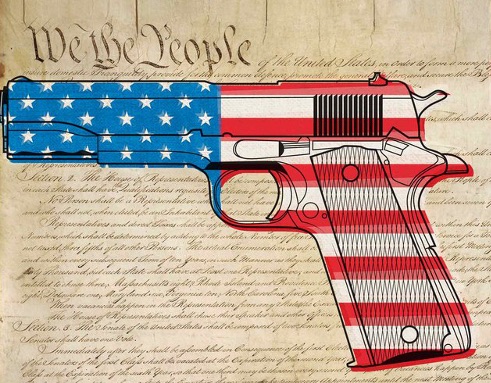
Americans have no Second Amendment right to carry concealed guns in public, a federal appeals court in California ruled on Thursday in a significant blow to gun-rights activists and gun owners in a large swath of the Western U.S.
The San Francisco-based Ninth U.S. Circuit Court of Appeals, in a 7-4 ruling, upheld a California law requiring residents to show ?good cause? for carrying a concealed handgun.
Under the California law, personal safety alone doesn’t qualify as good cause, which is defined by county sheriffs. The plaintiffs, gun owners seeking licenses to carry their weapons concealed, said the policies in San Diego and Yolo counties where they live violated their Second Amendment rights.
?We hold that the Second Amendment does not preserve or protect a right of a member of the general public to carry concealed firearms in public,? wrote Judge William A. Fletcher, an appointee of President Bill Clinton, for the seven-judge majority.
Lawmakers are free to enact ?any prohibition or restriction a state may choose? on the carrying of concealed guns, Judge Fletcher said.
A Second Amendment right to carry a firearm openly in public may exist, but the Supreme Court hasn’t answered that question, Judge Fletcher wrote.
In dissent, Judge Consuelo M. Callahan, appointed to the bench by President George W. Bush, said the Second Amendment demands individuals be permitted to carry a weapon in self-defense under the Second Amendment, either openly or concealed.
With some exceptions, California law bans people from carrying guns openly, she wrote. She was joined in her dissent by three colleagues.
Taken together, the concealed-carry policies and the open-carry ban ?obliterate the Second Amendment?s right to bear a firearm in some manner in public for self-defense,? she wrote.
The Ninth Circuit encompasses Alaska, Arizona, California, Hawaii, Idaho, Montana, Nevada, Oregon and Washington. The ruling aligns the court with three other regional appeals courts that have upheld good-cause requirements: the Second, Third and Fourth circuits. The Chicago-based Seventh Circuit ruled in 2012 that the right to bear arms ?implies a right to carry a loaded gun outside the home.?
Many gun-law experts, Second Amendment scholars and others expect the law on concealed-carry outside the home ultimately will be settled by the U.S. Supreme Court. The court has so far turned away several opportunities to take up the issue.
The ruling Thursday comes on the heels of a May 16 ruling by the Ninth Circuit recognizing that the Second Amendment protects the right to buy and sell firearms, as well as the right to keep and bear them.
Thursday?s ruling marked a reversal for the Ninth Circuit. In 2014, a three-judge panel of the court held that the Second Amendment ?does require that the states permit some form of carry for self-defense outside the home.?
But the Ninth Circuit voted to rehear the case, with more judges participating, upon the request of California Attorney General Kamala Harris. That rehearing before 11 judges led to Thursday?s 7-4 ruling.
The plaintiffs in the case include Edward Peruta of San Diego County, who was denied a concealed-carry licenses in 2009 for failing to show good cause.
The county defines the term as ?a set of circumstances that distinguish the applicant from the mainstream and causes him or her to be placed in harm?s way,? according to an affidavit filed by a county official in the case.
Mr. Peruta, a spot-news videographer based in Connecticut, said he hoped the ruling would draw attention to the importance of the U.S. Supreme Court vacancy at stake in the presidential election, as well as future ones.
?This ruling could not have come at a better time,? said Mr. Peruta, who described himself as a part-time resident of San Diego.
Ms. Harris said in an emailed statement that the ruling??ensures that local law enforcement leaders have the tools they need to protect public safety by determining who can carry loaded, concealed weapons in our communities.?
Yolo County has no definition of good cause but offers applicants examples of who may have it, such as a victim of documented threats of violence or a business owner who carries large sums of cash or valuables.
The Ninth Circuit majority traced concealed-carry licenses to 1299 England, when King Edward I told his sheriffs to prohibit anyone from ?going armed within the realm without the king?s special licence.? The court also cited restrictions on carrying concealed weapons that several American colonies adapted from English law centuries later. After the U.S. Civil War, at least five state constitutions explicitly stated that the right to carry concealed weapons could be prohibited by the legislature.
?The carrying of concealed weapons was consistently forbidden in England beginning in 1541; was consistently forbidden in the American colonies; and was consistently forbidden by the states,? Judge Fletcher wrote.
Thursday?s decision inspired dueling narratives from the country?s largest gun advocacy groups, both of which filed briefs in the case.
Source: wsj.com
